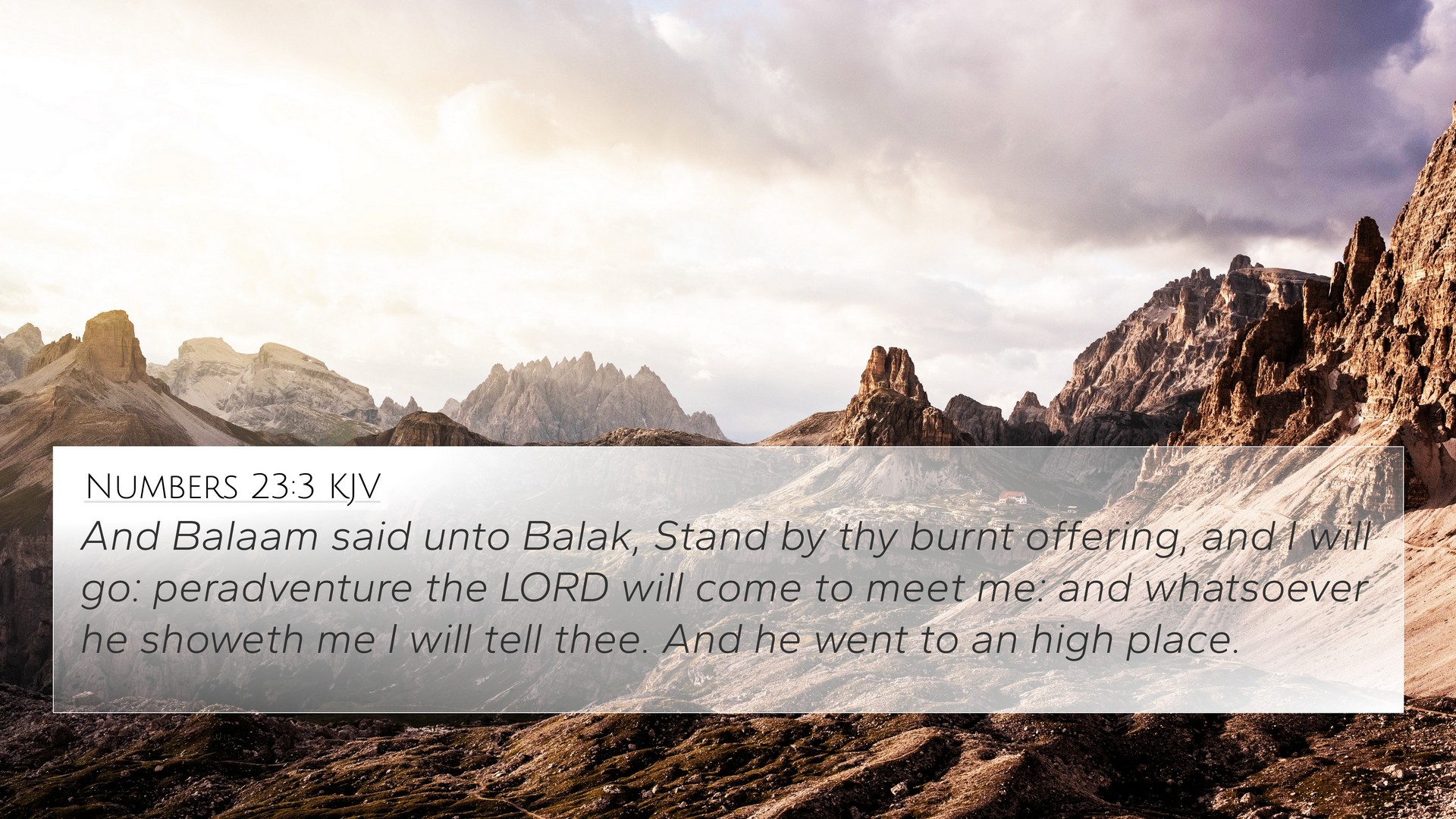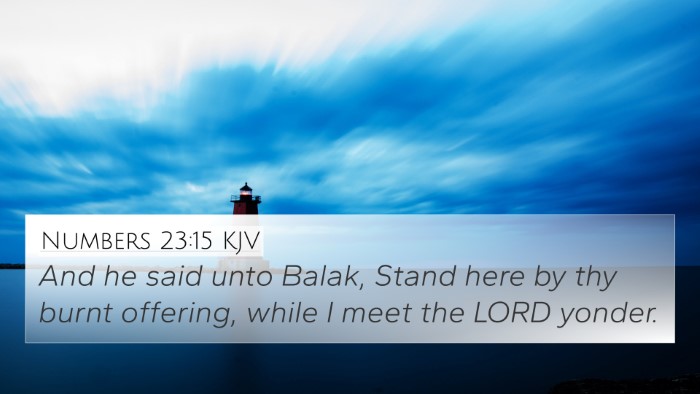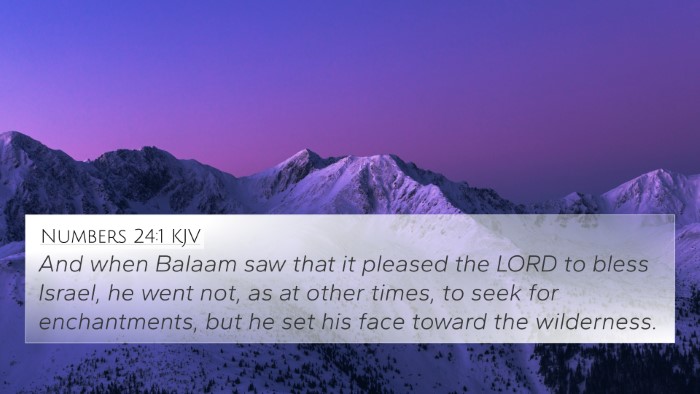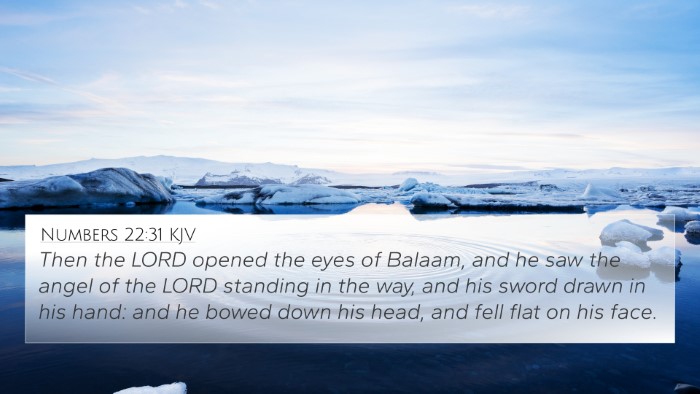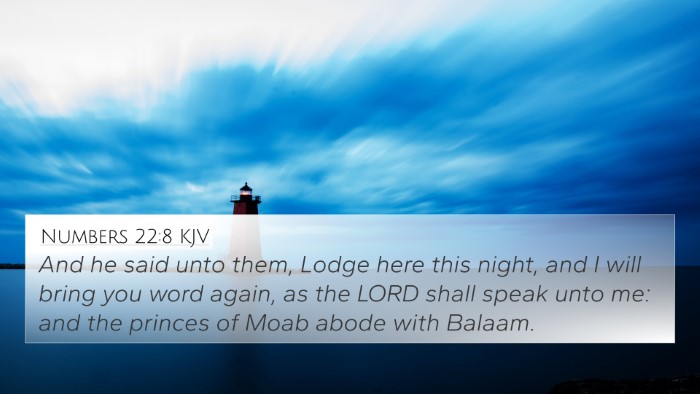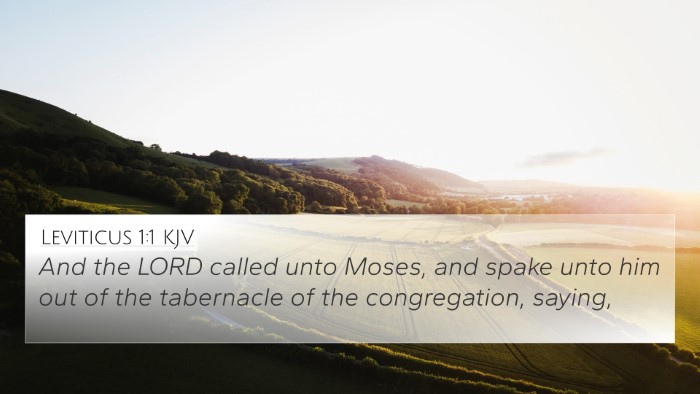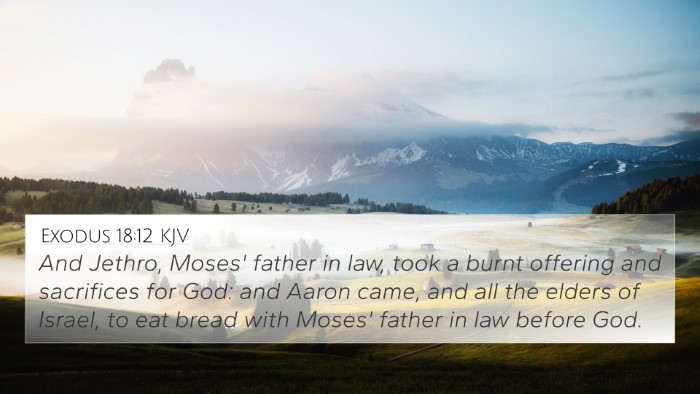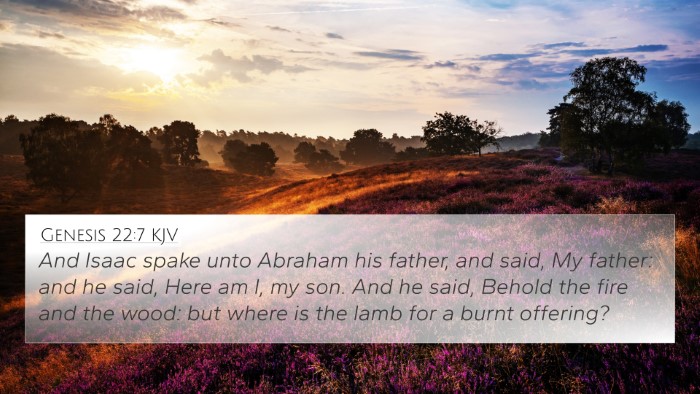Understanding Numbers 23:3
Bible Verse: Numbers 23:3
"And Balaam said unto Balak, Stand by thy burnt offering, and I will go: peradventure the Lord will come to meet me: and whatsoever he sheweth me I will tell thee." (KJV)
Contextual Overview
The verse in Numbers 23:3 occurs during the time when Balak, the king of Moab, has summoned Balaam, a prophet, to curse the Israelites. This strategic moment sets the stage for divine communication and the prophetic words that will follow.
Commentary Insights
- Matthew Henry: Balaam's response indicates his attempt to connect with God. His initial approach reflects a mixture of awareness of God's power and an eagerness to fulfill Balak’s desires for his own gain. Here, it shows the tension between divine authority and human manipulation.
- Albert Barnes: Barnes emphasizes the significance of Balaam's phrase "the Lord will come to meet me." This notion suggests Balaam's expectation of a divine encounter, revealing both a prophetic calling and the complexities of his motivations, as he is torn between obedience to God and the desires of Balak.
- Adam Clarke: Clarke highlights that this verse reflects the process of prophetic revelation. Balaam prepares for what he believes will be an essential meeting with God, indicating a methodological approach to understanding divine will, contrasting the true prophetic role with Balaam's greed.
Thematic Connections
Numbers 23:3 illustrates various key themes, including:
- The importance of divine revelation - Balaam seeks God's guidance.
- The conflict of interests - Balak’s desires vs. God's will.
- The role of the prophet - The task of relaying God's message accurately.
Cross-References
This verse can be linked with several other biblical texts that resonate with its themes:
- Exodus 7:1 - God appoints Moses as a prophet to Pharaoh, highlighting the authority and responsibility of prophetic roles.
- Deuteronomy 18:18-19 - God promises to raise up a prophet and emphasizes the importance of listening to His words.
- 1 Samuel 15:10-11 - God speaks to Samuel about Saul, showing the vital nature of divine communication with prophets.
- Job 33:14-15 - Affirms that God speaks in dreams and visions, paralleling Balaam’s prophetic experiences.
- Psalms 25:14 - The covenant relationship with God is a source of divine guidance, echoing Balaam's actions.
- Jeremiah 23:18 - Discusses the responsibility of prophets to ensure they are truly receiving God's messages.
- 2 Peter 2:16 - References Balaam's story as a warning against greed and the misuse of prophetic gifts.
Applications for Today
Balaam's situation brings forth several applications that remain relevant:
- Understanding the balance of motives in seeking God.
- Recognizing the importance of listening for divine guidance amid conflicting desires.
- Encouraging integrity in prophetic voices to maintain a pure communication of God's truth.
Conclusion
In Numbers 23:3, we see a significant interaction that brings forth themes inherent in the relationship between God and His messengers. The verse highlights the struggle between divine will and human ambition, inviting readers into a deeper exploration of how we approach divine revelation in our lives.
Further Study and Reflection
Through cross-referencing Bible verses such as those mentioned, readers can explore the broader narrative of Scripture and draw connections between different biblical themes. This creates a rich tapestry of understanding that enhances one’s study experience.
